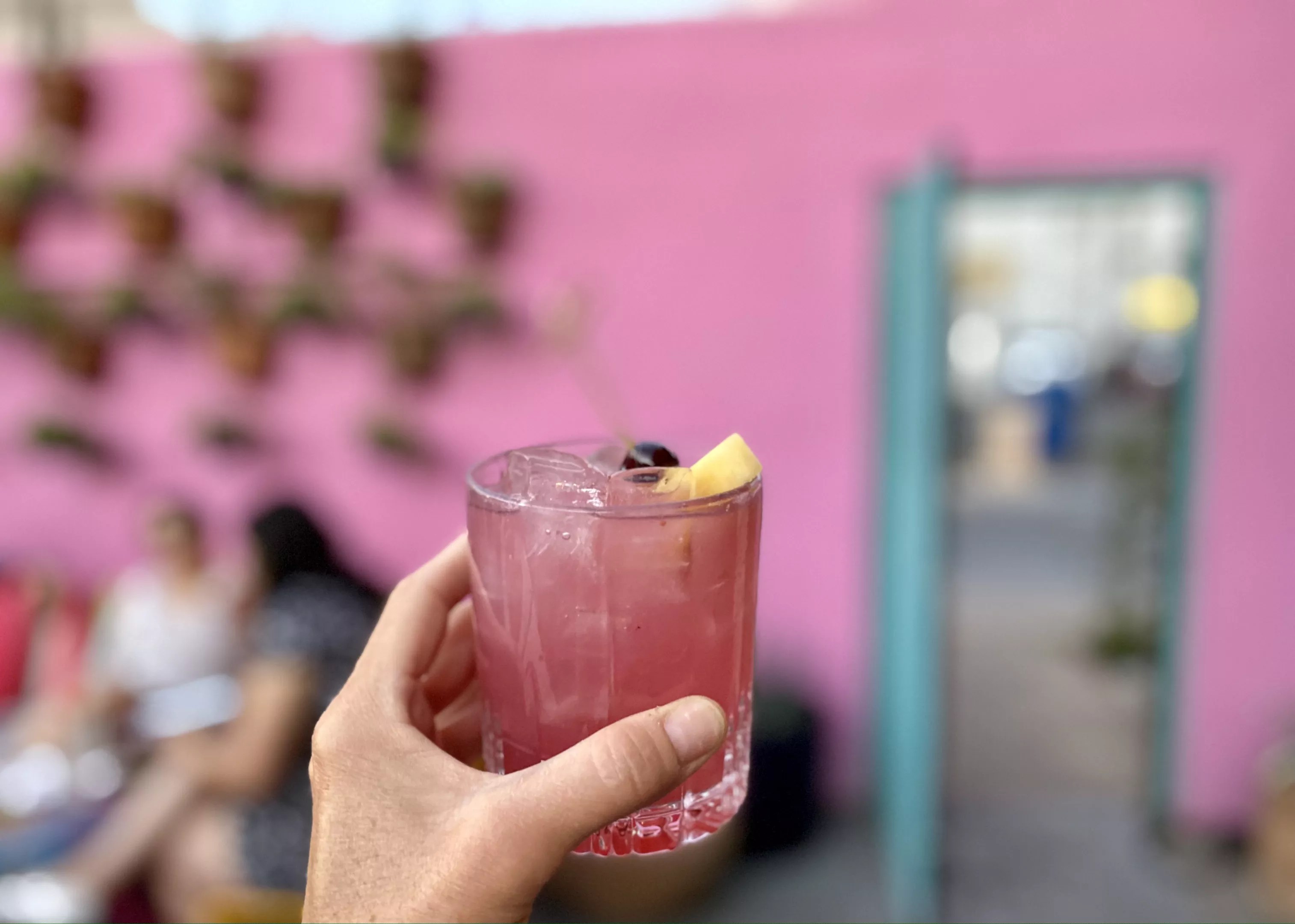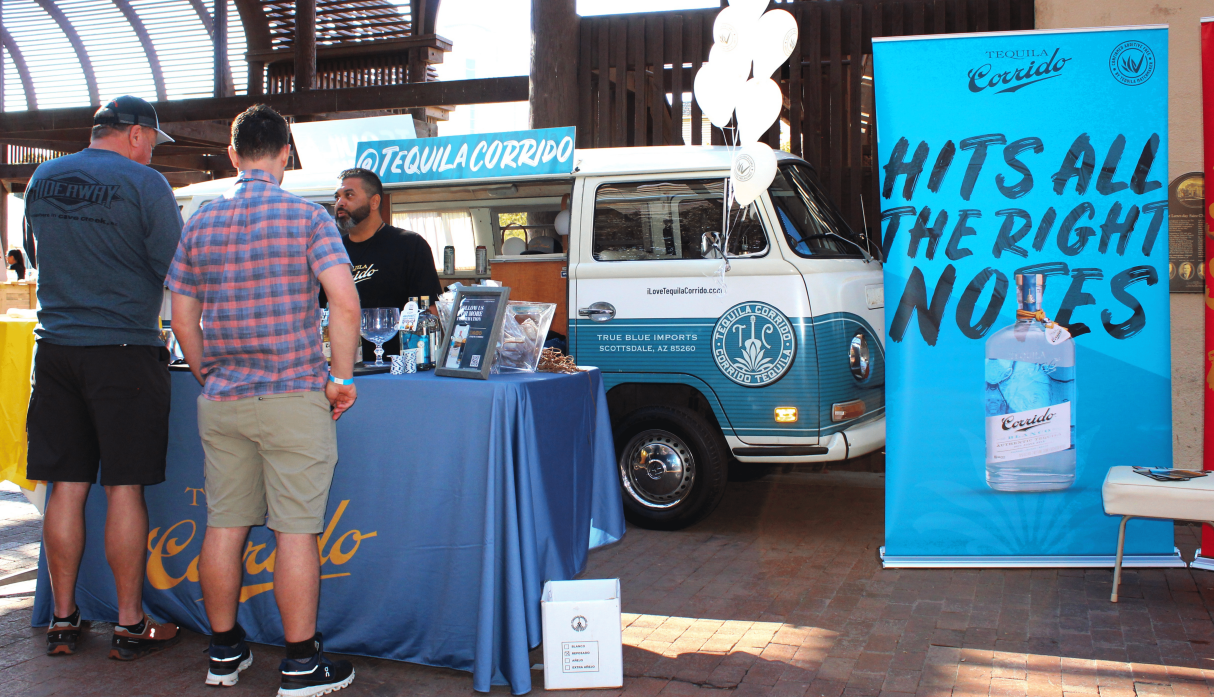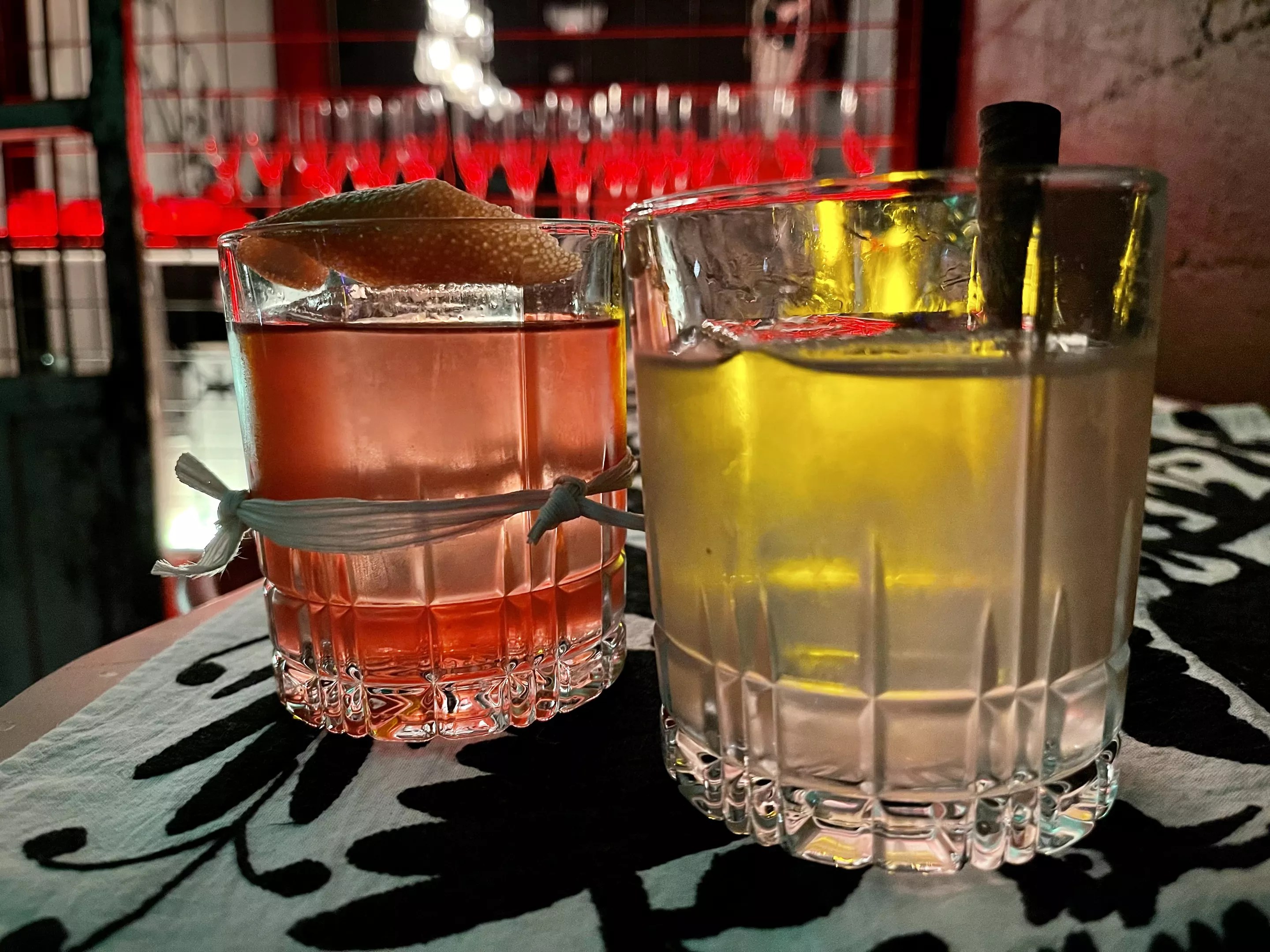
Allison Young

Audio By Carbonatix
There’s just one thing that Valley spirits distributors and bar owners are certain of when it comes to President Donald Trump’s global tariffs agenda: uncertainty.
“Wait and see – almost everybody I talk to is just ‘wait and see,'” says David Tyda, who owns BARCOA, a downtown bar that celebrates spirits from Mexico.
While average consumers try to wrap their minds around what a tariff is and how it may impact their dining tab or grocery bill, those who produce or purchase international goods have been closely watching the news.
On April 2, holding a large chart titled “Reciprocal Tariffs,” Trump announced a sweeping global tariff plan that includes a baseline 10% duty on most goods coming into the United States. A tariff is a tax imposed on the importer at the border. While they were a previous focus, Trump did not mention Mexico or Canada in his press conference, and, for now, the two neighboring countries have managed to avoid much of the fallout of the growing trade war.
In the week since Trump’s sweeping plan debuted, global markets have tumbled. Economists have warned that consumers will feel the impact, warning of slower economic growth and widening inequity.
The non-partisan Budget Lab at Yale estimates the April 2 tariffs will cost American households between $1,700 and $4,600 this year.
“The notion, presumably, is that those countries need to be penalized and we need to tariff their goods, but the tariff is not a penalty on foreign countries,” says Dennis Hoffman, an economics professor at Arizona State University’s W.P. Carey School of Business. “The direct penalty will fall on us as consumers of food, as managers and owners of restaurants.”
Currently, Mexican agave spirits and wine aren’t tariff targets. That hasn’t stopped the local industry from planning ahead.

Tequila Corrido, pictured at the Spirits of Mexico Festival, has brought more of its inventory from Mexico “as a safety precaution” against proposed tariffs.
Spirits of Mexico Festival
Stocking up as a ‘safety precaution’
Ken Phox is the president and creative director of Tequila Corrido, a Valley brand that was founded by Brad Hoover in 2007. When Hoover died in 2010, the business went dormant; the tequila company was revived by Brian Raab and Tony Boyle in 2018.
Phox says his team has brought additional bottles of their tequila, which is distilled in Jalisco, Mexico, to Scottsdale since November. The company has been stockpiling bottles that would normally be stored in Mexico, doubling their stateside inventory “as a safety precaution.”
“Without knowing what Trump does on a daily basis, we would rather plan for the worst,” Phox says.
While that means the company had to spend money upfront to get their blanco, reposado, anejo and over-proof tequilas into the U.S., it ensures they have products that can tide them over until trade tensions are resolved.
They’re not alone. In recent weeks, importers have scrambled to bring more goods into the U.S. Compa Spirits imports and distributes boutique Mexican wine and alcohol brands around Arizona. Owner Abel Arriaga saw more traffic at the border in the lead-up to Trump’s announcement, causing some delays.
Arriaga has been checking in with clients – sharing product availability, pricing and answering questions about back-up items.
“I think everyone’s going to do the panic buy,” he says, estimating that restaurants and bars may load up on existing items that were imported before new tariffs start kicking in.
That, however, requires cash on hand and room to do so. Tyda, whose two-story bar carries an expansive library of more than 200 tequilas, mezcals, sotols, raicillas, bacanoras and other spirits from Mexico, says he doesn’t have the space to keep extra inventory.
The tariffs also come at the end of Phoenix’s high season. As temperatures rise, business will fall for local restaurants and bars.
Adrian Galindo, the beverage director for the hospitality group behind Tacos Chiwas, Santo Arcadia, Espiritu and the coffee shop and amaro bar Aruma Cafe, says he updates annual cocktail menus in the summer, in part, to give staff time to learn the new drinks during the slower season. Right now, he’s staying in touch with his distributors about availability and costs, but he’s not changing how he’ll approach crafting new menus.
“The world is going to do what the world does, and we can only really react to it,” Galindo says. “Obviously everybody’s nervous about it because it is a big change, but it’s a thorn in the side as opposed to a bullet in the head.”

Agave spirits from Mexico are the entire focus of BARCOA in downtown Phoneix.
Tirion Boan
Tariffs are just one part of pricing
At an encyclopedic bar like BARCOA, Tyda avoids adding a high markup on his agave spirits to encourage customers to try something new. Pours start at $8 and cocktails at $10.
“I do have room to increase prices,” Tyda says, “but I don’t want to.”
Right now, the bar owner doesn’t have to explore that option – and he’s hopeful he won’t.
“If there’s a 25% increase in costs for a couple months, it would sting, but we’re in a position to weather something like that,” he says. “If it’s something that’s long-term, I don’t know.”
When asked what that could look like, Tyda shared his thought process. Before raising prices, he’d seek other ways to save, such as eliminating happy hour pricing. If, hypothetically, he was staring down a long-term 25% price hike on the blanco tequila used in BARCOA’s house margarita, he’d consider a price increase of 15 to 20%, or about $1 to $2 per drink. He emphasizes that boutique alcohol prices regularly fluctuate, and those changes aren’t the only thing he’d consider before changing drink prices. Other costs, from ice to labor, play a role too.
“Even if a tariff did hit, that doesn’t translate to all my prices going up 25%,” he says.
Phox says there’s a lack of public understanding about how tariffs work. Businesses like Tequila Corrido pay the tariffs levied at the border, and those increased costs can trickle down, leading to higher prices at the store, at a restaurant or bar. If food and drink prices do go up, he wonders if people will chalk it up to higher inflation and not make the connection to tariffs.
“You literally have to be an economist to put the pieces together,” Phox says.
Hoffman, who is also the director of ASU’s Center for Competitiveness and Prosperity Research, agrees.
“We’ve become accustomed to paying higher prices,” he says.
In 2022, the Phoenix metro area had the country’s highest rate of inflation, at 12.3%. In November, it was 1.56%, which was more than one point lower than the national average. Now, Hoffman fears inflation will return to the Valley, too.
“We were ready to ease the pain, especially in Arizona,” Hoffman says. “I fear the inflation bug is going to come back big time again, and that’s going to be bad because it’s going to put pressure on restaurants, it’s going to put pressure on us to pay our grocery bills.”
The Trump administration has shared several goals with the tariffs, including increasing manufacturing in the U.S., balancing the country’s trade deficit, using tariffs as a cudgel to curb the inflow of fentanyl and creating revenue. Previous tariffs haven’t realized such outcomes because they often lead to retaliation from the other countries involved, ultimately increasing costs for companies and consumers.
Tyda is at a loss to see how the changes could benefit Americans.
“It seems like it’s creating more problems than it would be solving,” Tyda says.
The Wilmington Trust now estimates the chance of the U.S. slipping into recession at 60%.
“The level of new tariffs is just absolutely massive,” the trust’s Chief Economist Luke Tilley told The Washington Post last week. “There is still so much uncertainty, but if these tariffs stay on for three months, there’ll be a recession – and that will be one of the easier calls I’ve had to make in my 25 years of being an economist.”
In addition to the uncertainty created by this trade war, bar owners like Tyda are concerned about how it will impact relationships with the U.S.’s closest allies.
“Why are we fucking with our neighbors?” he asks. “There’s problems in every relationship, but by and large, we have such a good working relationship and there’s so many cross-border connections that do so much good by so many people. To hurt that, that breaks my heart.”